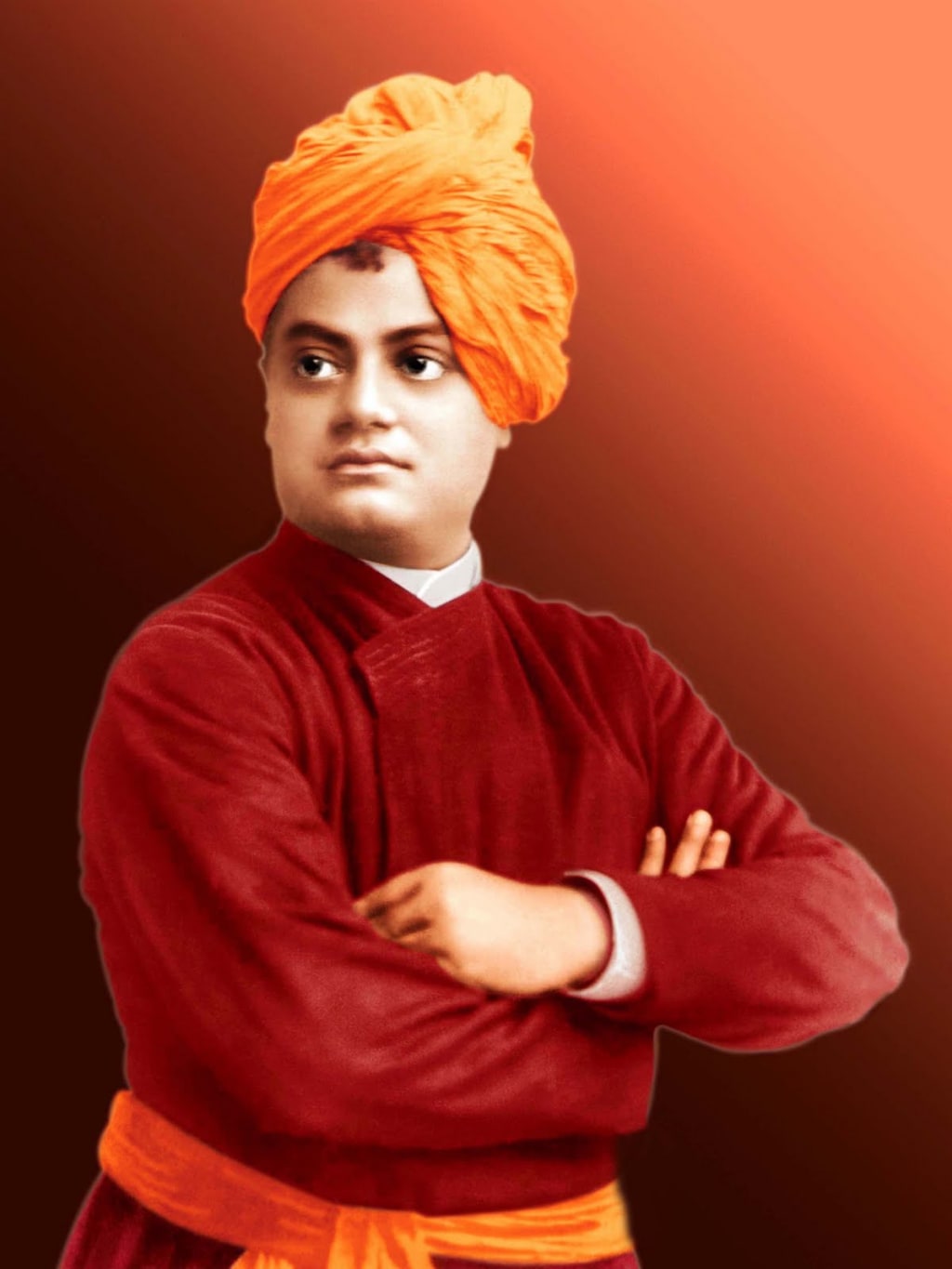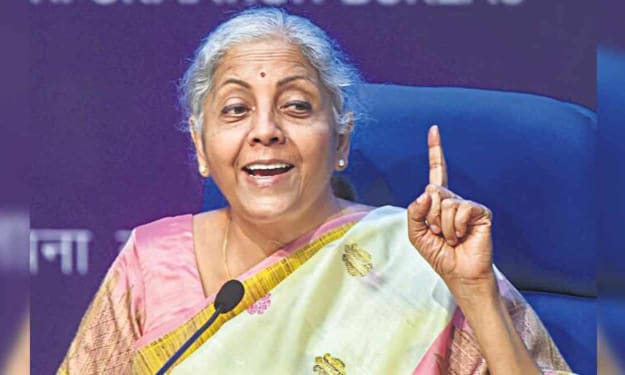
Biography:
Swami Vivekananda (born Narendranath Datta) was a Hindu monk and chief disciple of the 19th-century Indian mystic Ramakrishna. He was a key figure in the introduction of the Indian philosophies of Vedanta and Yoga to the Western world and is credited with raising interfaith awareness, bringing Hinduism to the status of a major world religion in the late 19th century. He was a major force in the revival of Hinduism in India, and contributed to the concept of nationalism in colonial India. He was a spiritual teacher and a cultural ambassador of India. He founded the Ramakrishna Math and the Ramakrishna Mission. He is considered to be one of the most influential figures in the history of modern India, and was an important contributor to the Indian independence movement. He passed away on July 4, 1902.
More in detail:
Swami Vivekananda was born on January 12, 1863, in Kolkata, India, as Narendranath Datta. He was the eldest of nine children born to Vishwanath Datta, a lawyer, and Bhubaneswari Devi, a devout housewife.
From a young age, Narendranath was drawn to spirituality and had a deep curiosity about religion. He was well-versed in the Hindu scriptures and was particularly interested in the Bhagavad Gita and the Upanishads. He also had an aptitude for gymnastics, wrestling, and other physical pursuits.
In 1881, Narendranath met Ramakrishna, a mystic and religious leader, who would become his spiritual mentor. Ramakrishna's teachings, based on the unity of all religions, made a deep impression on Narendranath and he became one of Ramakrishna's closest disciples. After Ramakrishna's death in 1886, Narendranath, along with a few other disciples, took monastic vows and began traveling throughout India to spread Ramakrishna's message of universal tolerance and harmony.
In 1893, Vivekananda was invited to participate in the Parliament of World's Religions, held in Chicago as part of the World's Columbian Exposition. His powerful speeches and lectures, in which he spoke on the universality of all religions, made him a sensation in the United States and Europe. He then traveled extensively throughout the West, giving lectures and teachings on Vedanta and Yoga.
He returned to India in 1897, and established the Ramakrishna Math and the Ramakrishna Mission, which aimed at the spiritual and social upliftment of the people. Vivekananda also worked to establish educational institutions and orphanages, and to promote Indian culture and nationalism. He delivered many speeches and lectures on various topics related to Education, Nationalism, Religion, Social Reforms, and Women Empowerment.
During his lifetime, Vivekananda also wrote several books and articles on spiritualism, religion, and philosophy, including "Jnana Yoga", "Karma Yoga" and "Raja Yoga". He also wrote two books on his travels to the West, "The East and the West" and "Notes of Some Wanderings".
Swami Vivekananda died on July 4, 1902, at the young age of 39, but his teachings and ideas continue to have a profound impact on people around the world. His speeches, writings, and lectures continue to be studied and admired for their deep insights into the human condition and for their emphasis on the unity of all religions.
In conclusion, Swami Vivekananda was a Hindu monk, a philosopher, a spiritual teacher, and a cultural ambassador of India, who had a significant impact on the growth and development of Indian society in different aspects of life. He passed away on 4th July 1902 and left behind a message of hope and inspiration for future generations.
Swami Vivekananda's teachings and philosophy were based on the principles of Vedanta, which emphasizes the unity and oneness of all existence and the divinity of the individual soul. He believed that all religions are different paths to the same ultimate goal, and that true religion is not about ritual or dogma, but about realizing one's own inner divinity through meditation and self-realization.
One of his most notable contributions was his emphasis on the practice of Karma Yoga, the path of selfless action and service to others, as a means of spiritual growth and development. He believed that through serving others, one can overcome egoism, selfishness, and other negative traits, and attain inner peace and fulfillment.
Swami Vivekananda also placed a great emphasis on education, particularly the education of women and the lower classes, as a means of uplifting and empowering individuals and society as a whole. He believed that education should not just be about acquiring knowledge and skills, but also about developing character and moral values.
He also tried to address social issues in India, such as caste discrimination, poverty, and ignorance. He encouraged the upliftment of the lower castes, and believed that true spiritual progress could only be achieved through the removal of these social inequalities.
In addition to his contributions in India, Swami Vivekananda also had a significant impact in the West through his speeches, lectures and writings. He introduced many people to the principles and practices of yoga and meditation, and helped to popularize the study of Eastern philosophy and religion in the West.
In short, Swami Vivekananda was a true visionary, who through his teachings and actions, sought to bring about social, spiritual, and cultural change in the society. His message of unity, compassion, and self-realization continues to inspire people around the world.
Books:
Swami Vivekananda wrote several books during his lifetime, most of which were based on his lectures and speeches. Some of his most notable books include:
"Raja Yoga": This book is an introduction to the practice and philosophy of Raja Yoga, one of the paths of yoga, as taught by Swami Vivekananda. It covers the principles of yoga and meditation, and includes practical instructions for developing concentration, self-control, and spiritual insight.
"Jnana Yoga": This book is a guide to the practice of Jnana Yoga, the path of self-inquiry and wisdom, as taught by Swami Vivekananda. It covers the principles of Advaita Vedanta, the nondual philosophy on which Jnana Yoga is based, and includes practical instructions for developing discrimination and self-realization.
"Karma Yoga": This book is a guide to the practice of Karma Yoga, the path of selfless action, as taught by Swami Vivekananda. It covers the principles of karma and how to overcome egoism, selfishness, and other negative traits by engaging in selfless service to others.
"Bhakti Yoga": This book covers the principles of Bhakti Yoga, the path of devotion, and how to cultivate devotion as a means of attaining spiritual realization
"The East and the West": This book is a collection of speeches and lectures given by Swami Vivekananda during his travels in the United States and Europe. It covers a wide range of topics, including the similarities and differences between Eastern and Western philosophy and religion, and the importance of interfaith harmony.
"Notes of Some Wanderings": This book is a collection of accounts of Swami Vivekananda's travels and experiences during his time in the United States and Europe, as well as his teachings and impressions of different cultures.
All his books are considered to be valuable resources for understanding the teachings and philosophy of Swami Vivekananda and for gaining a deeper insight into the ancient wisdom of India and how it can be applied to modern life. They are still widely read, translated, and studied today.
Personal Life:
Swami Vivekananda lived a simple and austere personal life, in line with his monastic vows and his dedication to spiritual pursuits.
He was deeply devoted to his spiritual mentor, Ramakrishna, and considered him to be an incarnation of God. He was also deeply committed to serving others, and spent much of his time engaged in various social and spiritual activities, such as teaching and counseling, working with the poor and oppressed, and organizing charitable and educational programs.
Vivekananda was deeply concerned with the welfare of the people of India, and actively engaged in the Indian independence movement. He encouraged the youth to fight for freedom and advocated for the use of non-violent means to achieve that.
Vivekananda lived a very simple life and had a very disciplined lifestyle. He would wake up early in the morning and spend hours in meditation and other spiritual practices, including yoga, and he also followed a strict vegetarian diet. He was also a strong advocate of physical fitness and advocated the importance of exercise and healthy living.
In his personal life, Vivekananda had a strong sense of self-discipline, and was known for his strict adherence to monastic rules and his ascetic lifestyle. He was also highly respected for his wisdom, compassion, and deep understanding of spiritual and philosophical principles.
Although Swami Vivekananda's personal life was focused on spiritual pursuits and service to others, it is considered an inspiration for many people around the world, as an example of how one can live a simple, disciplined, and meaningful life.
Swami Vivekananda died on July 4, 1902, in Belur Math, India. The cause of his death is believed to have been complications from diabetes and severe exhaustion. He was only 39 years old at the time of his death.
It is reported that he had been experiencing symptoms of diabetes for several months before his death, and had been suffering from exhaustion due to his extensive travels and the demands of running the Ramakrishna Math and Ramakrishna Mission. Despite his poor health, he continued to work tirelessly until the very end, giving speeches and lectures, and providing guidance to his followers.
His death was a great loss to the spiritual community, and to the country of India. He was remembered for his wisdom, compassion, and deep understanding of spiritual and philosophical principles. His death was considered as a great loss for India, as well as for the world, as he was a great spiritual leader who left behind a message of hope and inspiration for future generations.
Today is January 12th, which indeed marks the birthday of Swami Vivekananda, who was born on January 12, 1863. He is considered one of India's most important spiritual leaders, and his teachings and philosophy continue to be widely studied and revered to this day. His birthday is celebrated as National Youth Day in India, to commemorate his contributions to the country's spiritual and cultural heritage, as well as his emphasis on the importance of education, self-discipline, and service to others. Many events and ceremonies are held across the country to honor his memory and legacy on this day.





Comments
There are no comments for this story
Be the first to respond and start the conversation.